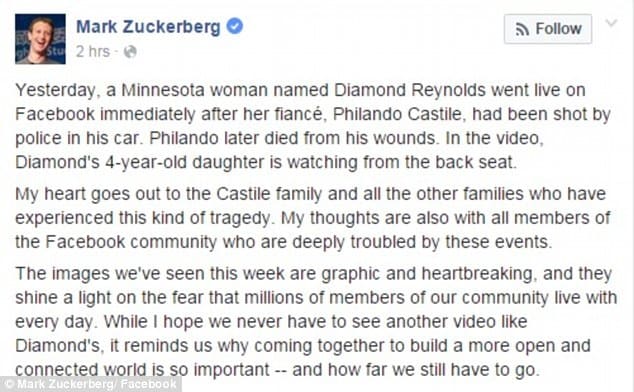In the wake of recent killings in the USA and people resorting to social media for help, alarm and awareness, Facebook has given us more reasons to regard it as an institutionalized social network. Millions of people across the world are actively using the new tools Facebook is releasing which perhaps points to the fact that their features are largely people-centric. With features like Facebook Live and what not, restrictions have to be reviewed and (new) rules have to be set.

Recently, the live stream feature on Facebook was the avenue through which a woman broadcast the gruesome shooting and untimely death of her boyfriend by a cop; a rather graphic footage that not every Facebook user would be obliged to watch. This has therefore raised concerns on the kind of content that gets live streamed on the social network and ethics surrounding it. To this end, Facebook released the following subjective guidelines: if a person posts violent content to “raise awareness,” the video can stay. If someone shared the same video to mock the victim, it will be removed. This means that videos like that of the shooting of Philando Castile (partner to woman mentioned above) will stay up so long as people post solely about the injustice of the incident.
The prerogative of Facebook deciding ultimately what is a mockery and what is awareness is most likely to come under a lot of scrutiny which they have experienced in recent past when a post violating its nudity guidelines and another of a woman being stabbed by her boyfriend were taken down.
Violence and nudity really are global phenomena; however, we see from the hashtags flying all over social media and people constantly clamoring for freedom of expression and absolute privacy, this may result in the never ending argument of who determines what is wrong or right and if they are capable of making that call?






